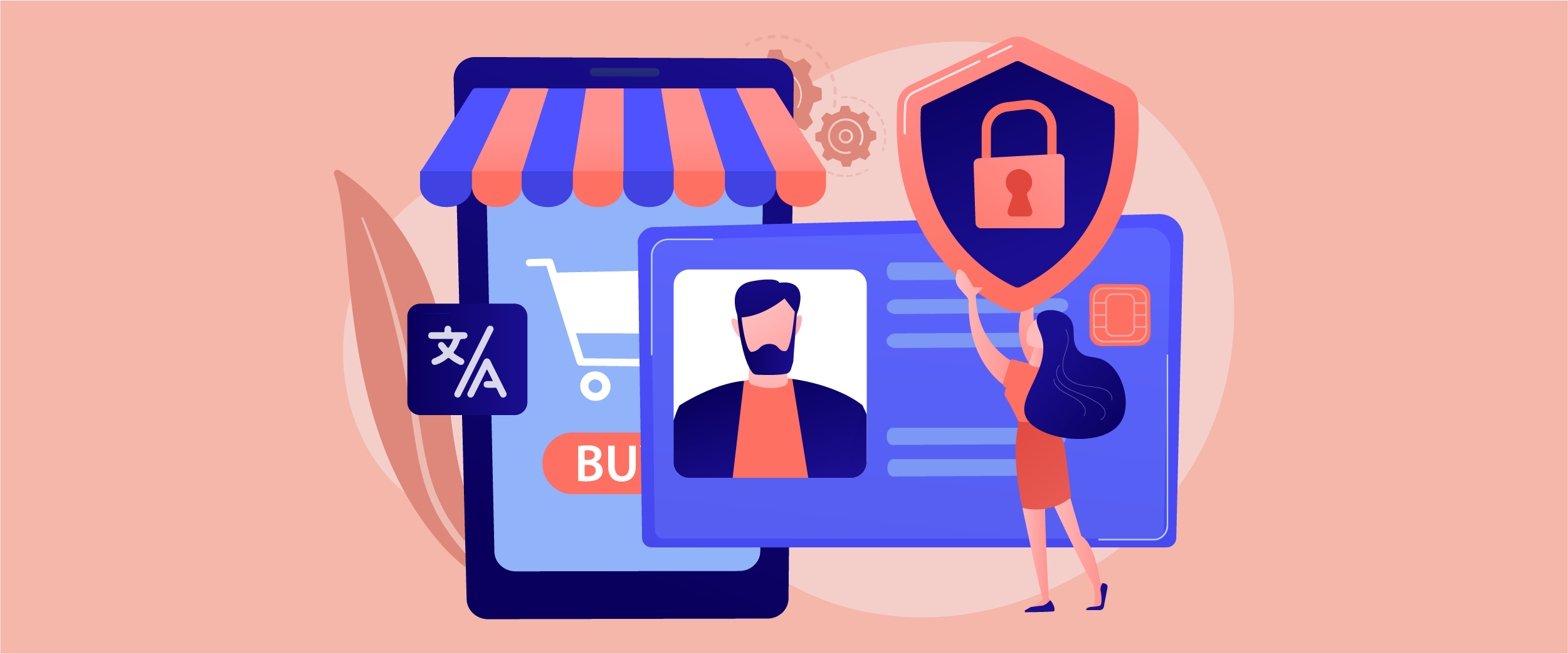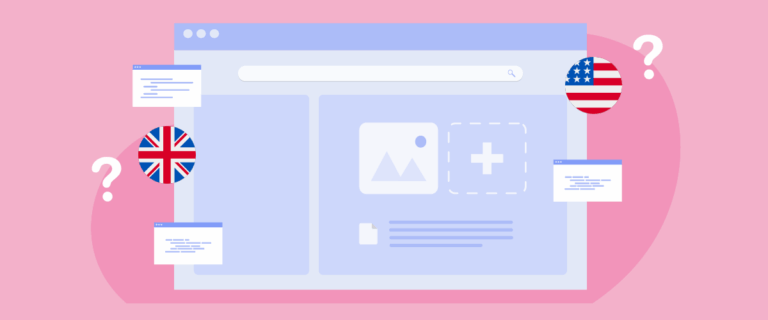The topic of how to handle privacy concerns in translation tools for e-commerce sites is becoming increasingly relevant as online businesses increasingly need to translate content into multiple languages. However, whenever customer data or business content is sent to a translation platform, there is always a potential security risk, ranging from information leaks to regulatory violations such as GDPR or CCPA.
Given the high volume of sensitive data, such as transaction information, customer preferences, and account details, e-commerce businesses cannot afford to choose translation tools carelessly. This article will discuss the most common privacy risks, best data protection practices, and case studies from Europe, Asia, and the United States. Let’s get started!
Why are E-Commerce sites particularly vulnerable?

E-commerce platforms are especially exposed to privacy risks because they handle large volumes of sensitive data and often rely on external services like plugins, APIs, and translation tools. When translations are performed, customer or business data may unintentionally be processed by third parties, making privacy protection more challenging. Here are the main reasons behind their vulnerability.
- High volume of customer data: Online stores collect information such as names, addresses, phone numbers, purchase history, and user preferences. If this content is translated without protection, it may be exposed to third-party servers.
- Multiple integrations with external platforms or plugins: E-commerce businesses frequently use additional tools (e.g., Shopify apps, WooCommerce plugins, or third-party APIs). Each integration introduces another potential data leak point.
- Cross-border data transfers: When using global translation services, data may be routed through servers in other countries that lack strict data protection regulations like GDPR.
- Limited control over data storage: Some translation tools store cached text, logs, or copies of processed content. Without transparency, businesses cannot be sure whether this data is deleted or retained.
- Different regulations across regions: GDPR, CCPA, and PDPA have varying requirements. If translation tools don’t comply with all relevant laws, online stores may face legal consequences.
- Lack of encryption in certain translation services: Some free or trial versions of translation tools do not use strong encryption, making data in transit vulnerable to interception.
Common privacy risks in translation tools

Translation tools may seem harmless, but many of them process data in ways that business owners are not fully aware of. When customer information or business content is sent to external services, the risk of exposure increases, especially if the platform does not follow strict data protection standards. Below are the most common privacy risks that e-commerce sites need to watch out for.
Unencrypted data transmission
When translation tools do not use encryption, any data sent between the website and the translation provider can be intercepted. This means that hackers, third parties, or even unsecured networks could access sensitive customer information. Without encryption, data travels in plain text, making it easy to read and exploit.
For e-commerce businesses, this is especially dangerous because the transmitted content may include product details, user profiles, order information, or internal messages. Even if the text seems harmless, it can accidentally contain identifiers like names, addresses, or payment-related details. Strong encryption during data transfer is essential to avoid data leaks.
Data storage without user consent

Some translation services store processed text on their servers to “improve machine learning” or “speed up future translations.” However, if users are not informed or do not give consent, this becomes a privacy violation. Many businesses don’t realize their data could be saved and reused without permission.
Storing data without consent not only risks privacy complaints but can also lead to regulatory issues under laws like GDPR or CCPA. When customer information is kept without clear approval, companies may face legal penalties and lose user trust.
Third-party access & internal misuse
Translation tools often involve multiple layers of systems and teams, including developers, support staff, or external vendors. If internal access is not controlled, unauthorized personnel could view or copy sensitive information. This includes both external contractors and internal employees.
Internal misuse can be difficult to detect and prevent without strict access policies. For example, a staff member at a translation provider may use stored data for training, sharing, or other purposes unrelated to the customer’s needs. E-commerce businesses need to ensure that only authorized systems, not individuals can handle private data.
Lack of control over data retention

Many translation platforms do not clearly explain how long they keep the content they process. If businesses cannot set or review data retention policies, sensitive text may remain stored indefinitely. This exposes the data to future breaches or unauthorized access.
A lack of retention control also makes it hard to comply with privacy regulations requiring deletion upon request. Without transparency, businesses may unknowingly allow customer data to sit on external servers long after it is needed.
Cross-border data transfer risks
When translation data is sent to servers in other countries, it may be subject to weaker privacy laws. For example, data sent from the EU to a non-GDPR country may lose its legal protection. This can occur silently through automatic routing by translation tools.
Cross-border transfers also complicate compliance, as businesses must ensure legal mechanisms like SCCs (Standard Contractual Clauses) are in place. If not properly managed, sensitive data may be exposed to governments, companies, or systems with low privacy standards.
Use of free tools without clear privacy policies
Free translation tools are often designed for convenience, not security. Many do not provide clear terms about how data is used, stored, or shared. Some may reuse submitted content to train their AI or store it on unsecured servers.
Because these services are free, they may rely on user data as a “hidden cost.” Without transparency, businesses risk exposing customer or company information for the sake of translation speed or budget savings.
Server location in low-protection jurisdictions
The physical or cloud location of a translation tool’s server affects how the stored data is treated. If the servers are in countries with weak privacy regulations, the data may be accessed without strict legal oversight. Some governments may even have the authority to inspect data without notification.
For e-commerce owners, not knowing where data is processed or stored can create major compliance gaps. Choosing providers with EU-based or GDPR-aligned infrastructure can reduce the risks tied to data residency.
Best practices for protecting customer & business data
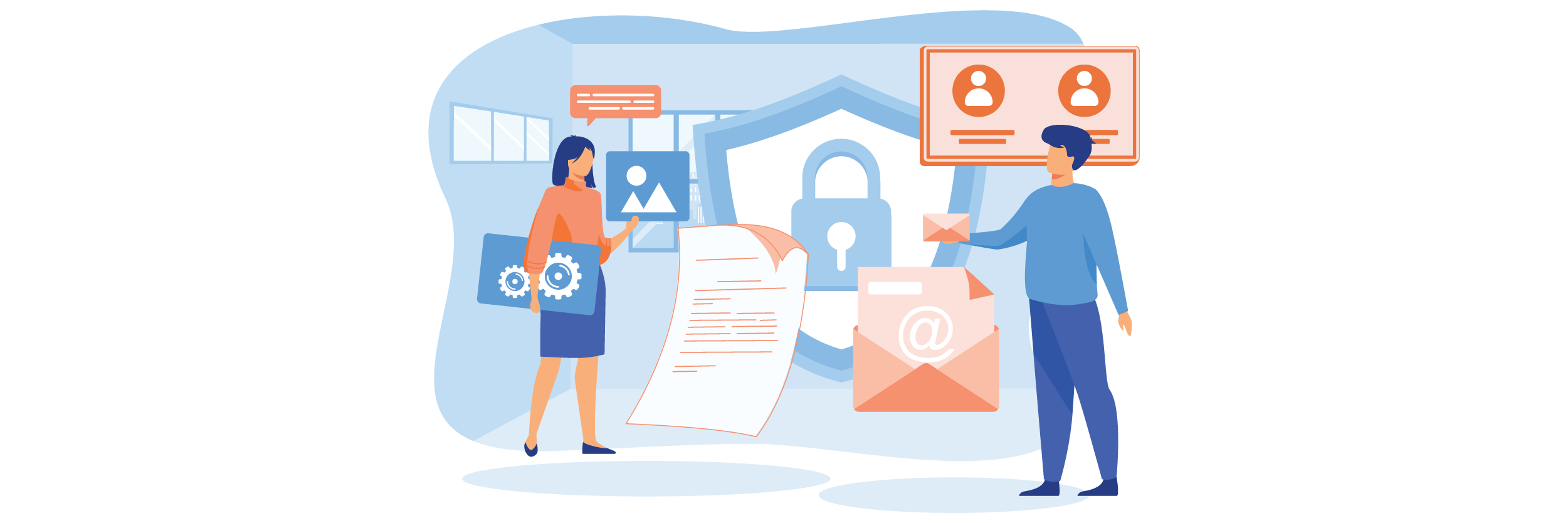
To reduce privacy risks when using translation tools, e-commerce businesses need more than just basic security features. They must apply strong data protection practices that ensure customer information, internal content, and transactional data remain safe at every stage, whether stored, transmitted, or processed by third-party services. Below are the most effective approaches that can be implemented in real-world scenarios.
End-to-end encryption
End-to-end encryption ensures that data is encrypted before it leaves the e-commerce platform and remains encrypted until it reaches the intended system. This prevents unauthorized access, even if the data is intercepted during transmission. Without this protection, sensitive details such as customer notes, product descriptions, or internal communications may be exposed in transit.
For example, a Shopify store using an encrypted API connection to a translation service prevents readable text from being intercepted during submission. If a provider like Linguise translation tool applies TLS/HTTPS and encrypted storage, the data stays protected from external threats.
Data anonymization & minimization
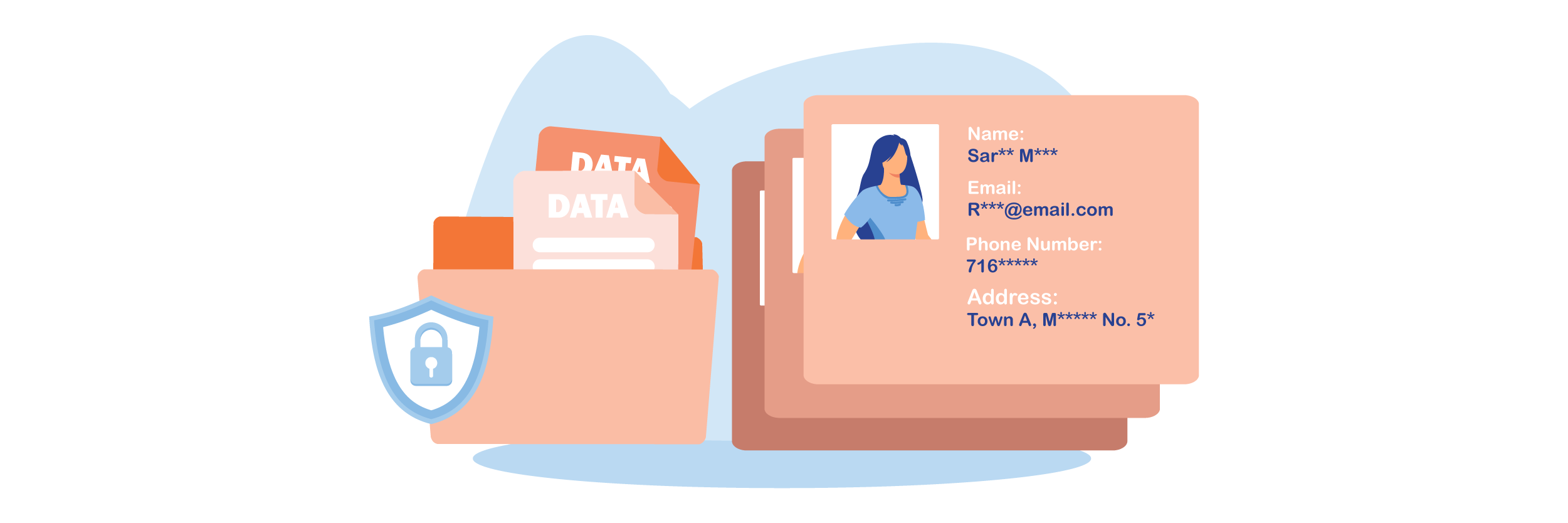
Data anonymization removes or masks identifiable customer information before it is sent to a translation system. Meanwhile, data minimization means only sending the parts of the content that actually need translation, no excess details. These two methods help prevent personal data from being exposed unnecessarily.
For instance, instead of sending a full customer support message with names and order details, only the general text can be translated. Some platforms automatically replace user identifiers with placeholders to avoid privacy issues during processing.
Secure API & access control
A secure API ensures that only authorized systems and users can interact with translation tools. This includes using authentication keys, restricted permissions, and encryption for API calls. Without this, attackers or unauthorized staff may gain access to sensitive text submitted for translation.
For example, a WooCommerce site can restrict its translation service API to backend requests only, blocking public or external access, role-based access control also limits which team members can view or manage translated content.
Data residency & server transparency
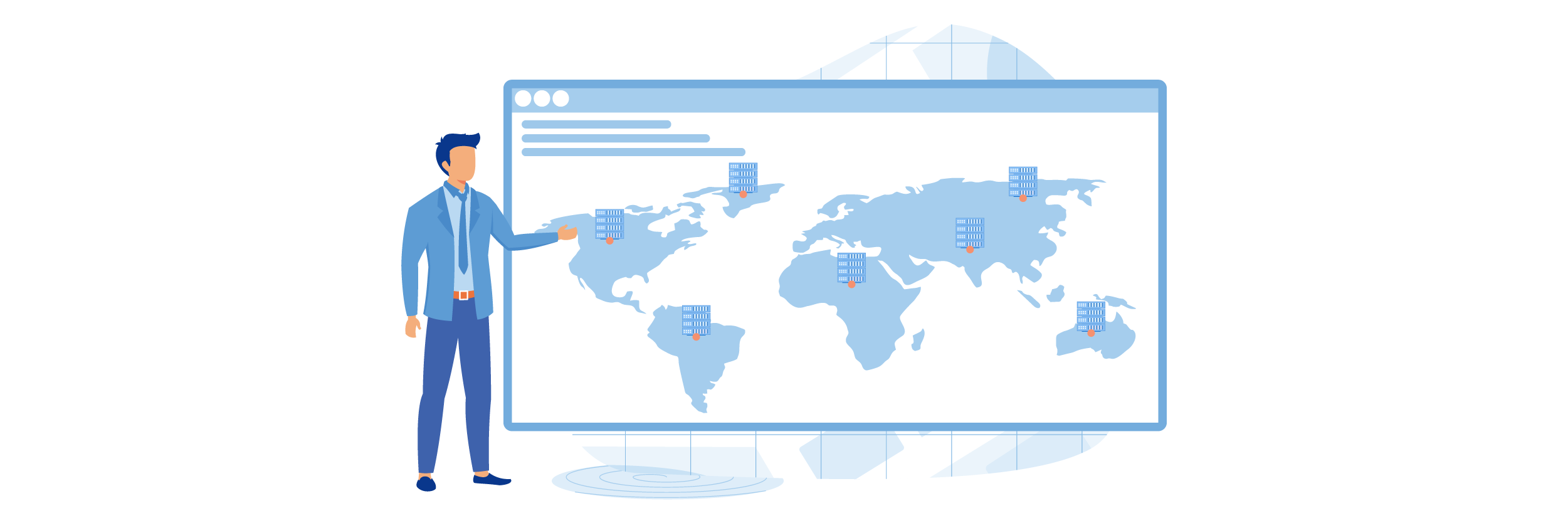
Data residency refers to where the data is stored and processed. Translation tools should clearly state their server locations and comply with regional data protection laws. When businesses know where their data goes, they can avoid legal violations and security blind spots.
For example, a European e-commerce business under GDPR may choose a translation provider that stores data only in EU data centers. If a tool like Linguise offers EU-based infrastructure, it helps prevent the transfer of text to less secure jurisdictions.
Audit trails & access logs
Audit trails and logs track who accesses, stores, or modifies data during translation. These records help detect suspicious activity, ensure accountability, and support compliance with regulations. Without clear logging, unauthorized access can go undetected.
A practical case is when a translation platform maintains logs of every API call, user access event, or cache retrieval. If a breach occurs, the business can trace when and how the data was accessed and take corrective action.
Contractual safeguards (DPA, SLA, NDA)
Legal agreements ensure translation providers are held accountable for data protection. A Data Processing Agreement (DPA) sets out how data is used and safeguarded. A Service Level Agreement (SLA) covers uptime and incident response, while an NDA prevents providers from sharing confidential information.
For example, an online store using a third-party translation API should require a signed DPA that defines data handling rules and deletion policies. This ensures compliance with GDPR or CCPA and provides legal protection in case of misuse.
Regional case studies

Different regions enforce different privacy regulations, which directly impact how e-commerce businesses should use translation tools. Understanding these regional standards helps companies choose platforms that meet legal requirements and avoid potential fines or data misuse. Here’s how privacy concerns are addressed in three major regions.
EU (GDPR)
In the European Union, GDPR enforces strict rules on how personal data is collected, processed, stored, and transferred. Translation tools used by e-commerce platforms must ensure data minimization, encryption, and secure processing. Businesses must also guarantee that customer data is not stored indefinitely or shared without consent.
These GDPR rights also apply when third-party services, such as translation tools, process store content or customer information. That means any localization provider working with platforms like WooCommerce must allow data access, deletion, and secure handling under DPA terms. Providers that store data outside the EU, fail to apply encryption, or operate without contractual safeguards may put businesses at risk of non-compliance.
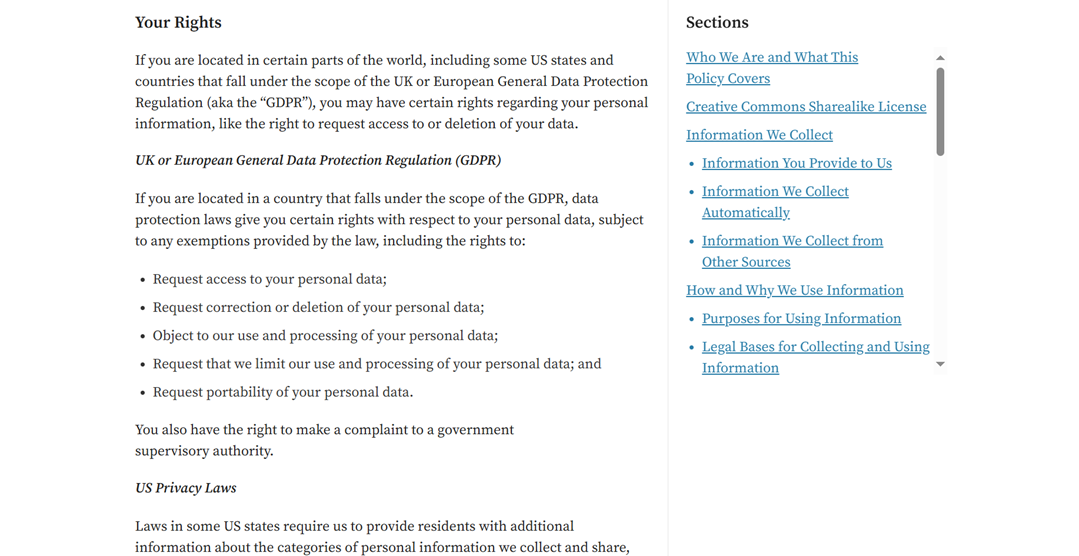
Asia (PDPA)
Several Asian countries have their own versions of data protection laws, such as Singapore’s PDPA and Thailand’s PDPA. These regulations focus on user consent, data retention limits, and responsible third-party processing. Unlike GDPR, the enforcement may vary by country, but the core principle is similar: protect customer identity and limit unnecessary data exposure.
For instance, an e-commerce business in Singapore that translates checkout pages into multiple Asian languages must ensure that the translation provider does not store customer names or addresses without consent. Tools that anonymize data before translation or provide local server options are considered safer.
This aligns with how major e-commerce platforms in Asia handle third-party privacy responsibilities. For example, Zalora’s Singapore policy states that any data collected by external vendors, whether for ads, analytics, or functional services, is governed by the third party’s own privacy terms, not the platform’s direct control. While the policy doesn’t explicitly mention translation tools, the same rule applies: any external service that processes user content must follow PDPA requirements, ensure secure handling, and prevent unauthorized retention or transfer of personal data.
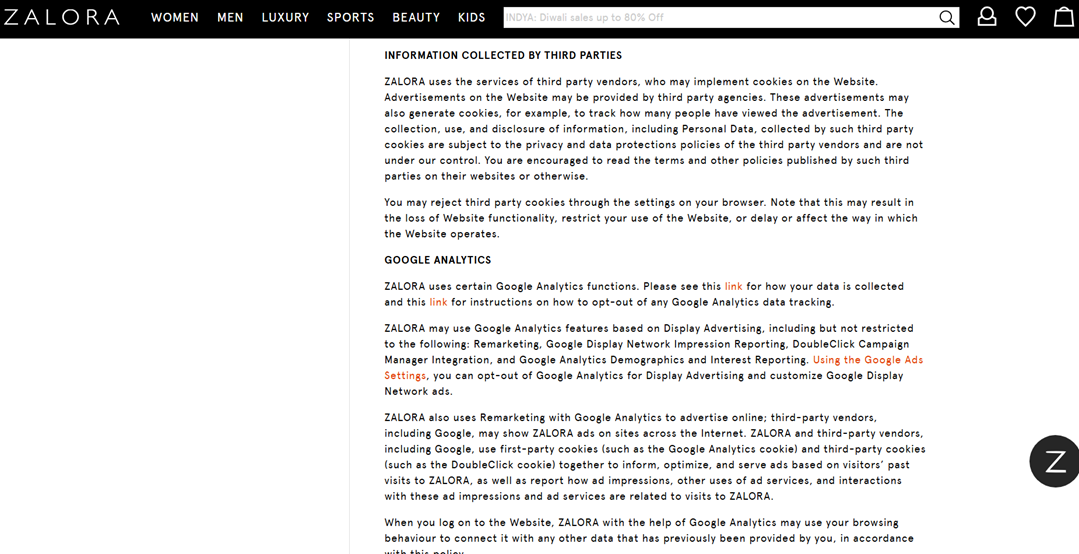
US (CCPA/CPRA)
In the United States, CCPA and its updated version, CPRA, offer consumers control over how their personal data is used and shared. While not as strict as GDPR, these regulations require transparency, opt-out options, and clear data handling policies. E-commerce businesses must ensure translation services do not sell, store, or misuse customer information.
Shopify, for instance, provides a dedicated United States Regional Privacy Notice to address state-level regulations such as CCPA and CPRA. This ensures merchants and translation tool integrations follow transparency, opt-out rights, and data deletion requirements.
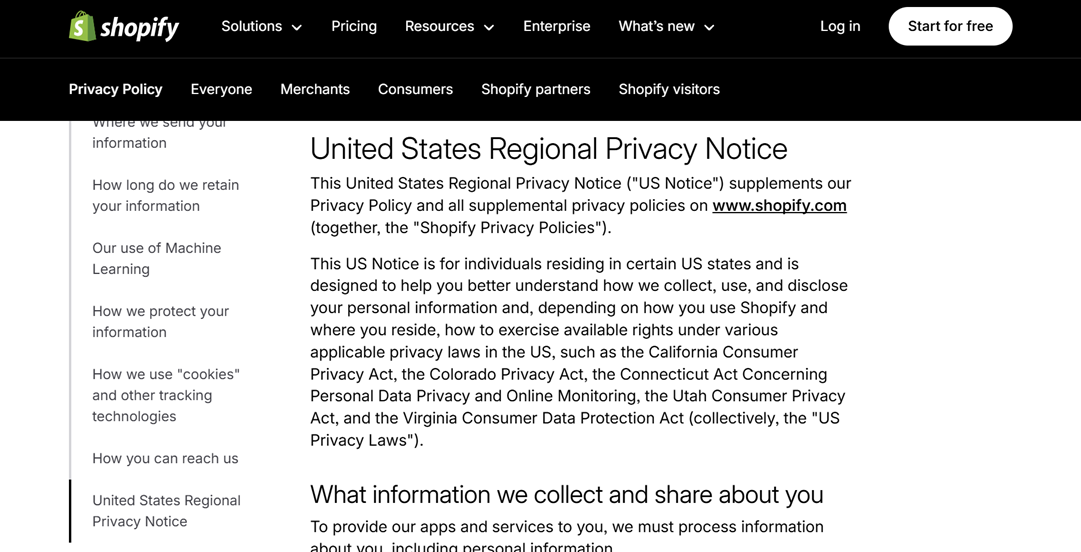
Compliance tips (GDPR, CCPA, PDPA)
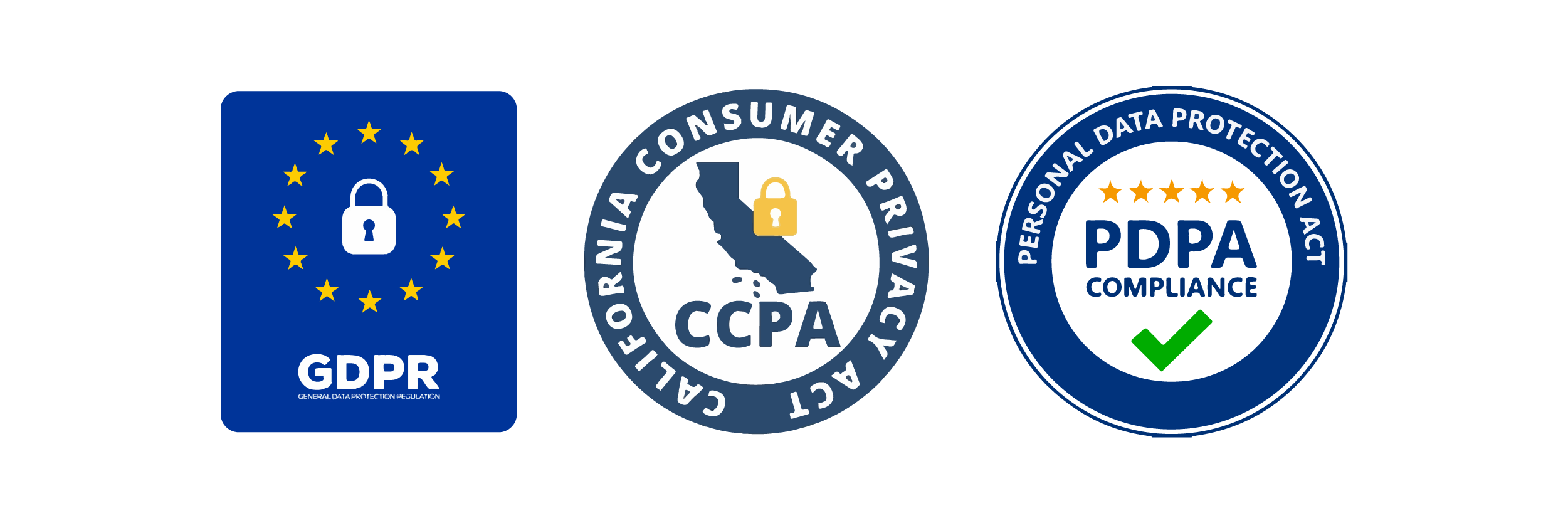
Regulations like GDPR in Europe, CCPA/CPRA in the United States, and PDPA in Asia set strict standards for how personal data should be collected, processed, stored, and shared. To stay compliant, businesses need a combination of internal policies, technical safeguards, and clear agreements with third-party providers such as translation tools. Below are key practices to follow.
Data minimization and pseudonymization
Data minimization means only collecting and using the information that is strictly necessary for a specific purpose. In e-commerce, for example, not all customer details need to be sent to translation providers. Limiting sensitive data reduces the impact of potential misuse or breaches.
Pseudonymization replaces identifiable data with codes or tokens so that the original identity is not immediately visible. This is especially useful when external tools like translation APIs process data. While the data can still be linked through internal references, direct exposure is prevented.
GDPR specifically encourages pseudonymization as a legally recognized safeguard. If a breach occurs, the data is far less likely to expose individual identities. It also helps during audits and internal security reviews.
Consent management for users

Consent is a central requirement across modern privacy laws. Businesses must clearly inform users if their data will be processed by third-party translation tools, especially if the content includes personal or transactional information. Being transparent builds user trust and reduces legal risk.
Beyond gathering consent, businesses must allow users to withdraw it at any time. This can be facilitated through cookie banners, preference settings, or opt-in/opt-out checkboxes. Every consent action should be logged and stored as proof of compliance.
Under GDPR and PDPA, valid consent must be explicit and well-informed. Meanwhile, CCPA often uses opt-out mechanisms for specific data categories. Without a proper consent management system in place, companies risk fines and loss of credibility.
To support transparent consent practices, major e-commerce platforms like Etsy also provide their privacy policies in multiple languages. This approach helps global users easily understand how their data is handled and reinforces trust across different regions.
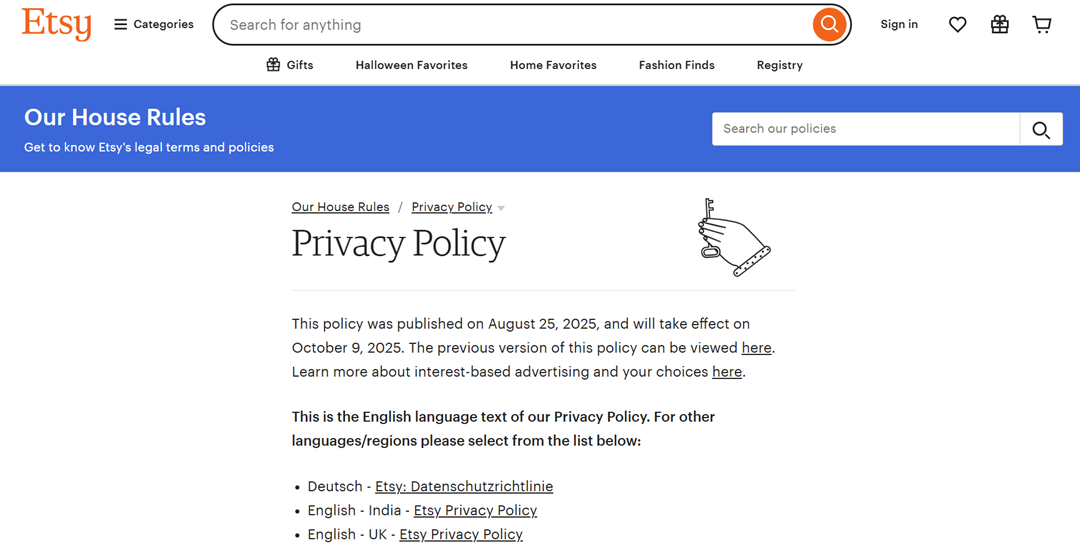
DPAs (Data Processing Agreements) with providers
When working with vendors like translation platforms, a Data Processing Agreement (DPA) is mandatory. It defines responsibilities for securing, storing, using, and deleting personal data. Without a DPA, using third-party tools may violate GDPR or PDPA requirements.
A DPA ensures vendors do not use data for unauthorized purposes, like analytics or AI training. It typically covers encryption, access limits, server location, sub-processors, and breach notification procedures.
Even large providers like Google Cloud or AWS Translate offer standard DPAs that clients must accept. During audits or investigations, having a signed DPA is one of the primary proofs of legal compliance.
Right of access, correction, and deletion of data
Users have the right to access their data, request corrections, and demand deletion if it is no longer needed. These rights are enforced under GDPR, CCPA/CPRA, and PDPA. This means e-commerce platforms and translation tools must support such requests in practice.
To comply, companies need properly structured data storage and tracking systems. If customer information is scattered across servers, vendors, and apps without visibility, responding to data requests becomes nearly impossible.
For example, a user may ask to delete chat transcripts that were translated and stored by a third-party provider. If the vendor lacks proper deletion mechanisms, the business—not the vendor—remains legally accountable.
Cross-border transfer with SCCs

Many translation services host servers in different countries, making cross-border data transfers a major compliance issue. Under GDPR, transferring data outside the EU is only allowed if equivalent protections are in place. One widely accepted mechanism is the use of SCCs (Standard Contractual Clauses).
SCCs are legally binding agreements between the sender and receiver of data, ensuring privacy standards remain intact. E-commerce platforms working with providers in the US, India, or Asia must include SCCs before allowing any transfer.
Some Asian PDPA laws also require prior notification or government approval for international data transfers. Without SCCs or similar safeguards, companies could be deemed to be exporting data unlawfully.
Privacy risk assessment (DPIA)
A Data Protection Impact Assessment (DPIA) is required when processing activities involve high privacy risks, such as AI-based translation tools that store conversations or process transaction data. DPIAs help businesses identify security gaps, excessive data use, or exposure to unauthorized access.
A DPIA evaluates the type of data collected, the purpose of processing, involved parties, storage methods, and retention periods. The results guide decisions on adding safeguards like encryption, access restriction, or improved vendor contracts.
Under GDPR, a DPIA must be completed before launching any new tool or system that handles sensitive personal data. If the assessment finds unmanageable risks, authorities may even block the activity. Beyond compliance, DPIAs help companies strengthen their overall data protection posture.
Comparison table of data handling: Linguise vs Competitors
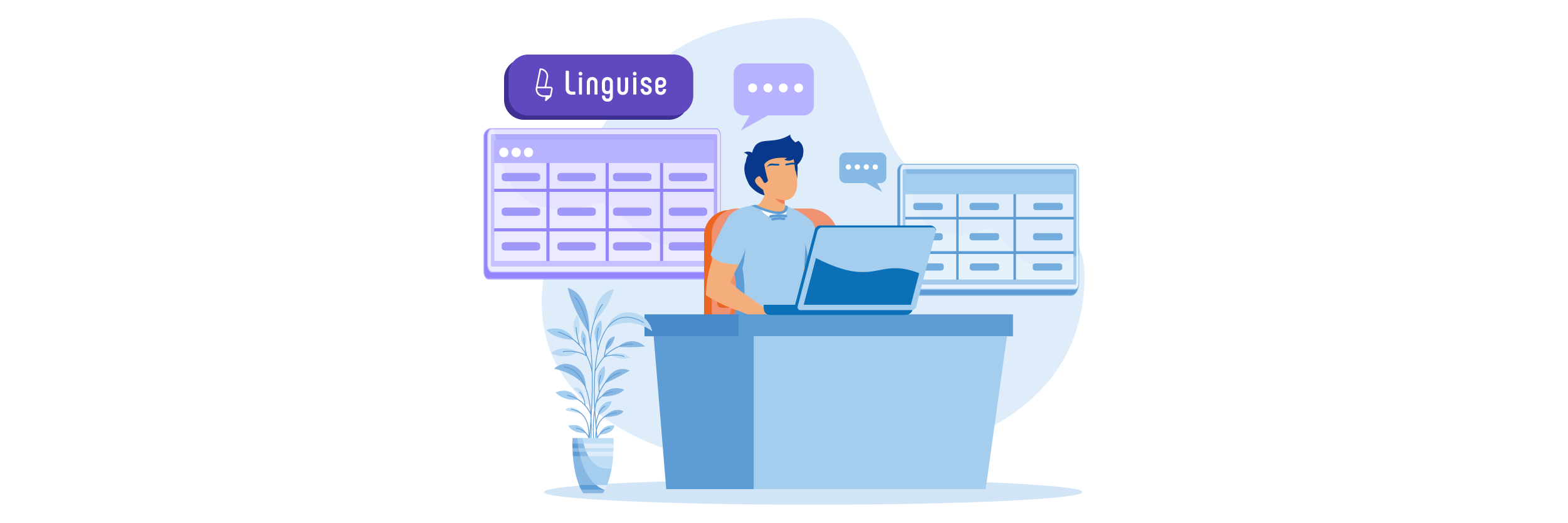
When choosing a translation tool for e-commerce, it’s not enough to compare features, you also need to evaluate how each provider handles user data. Different platforms have varying policies on storage, encryption, consent, and compliance with regulations like GDPR, CCPA, and PDPA. A direct comparison helps businesses make safer and more informed decisions.
Aspect | Linguise | Weglot | Google Translate API | Lokalise |
Data Encryption (In-Transit & At-Rest) | Yes (HTTPS & encryption) | Yes | Yes | Yes |
Data Storage Policy | Temporary, no long-term storage | Stores translations on servers | May retain data temporarily | Stores project data in the cloud |
User Consent Requirement | Required for personal data | Required (GDPR-based) | Not enforced by default | Required depending on usage |
Compliance (GDPR/CCPA/PDPA) | Fully compliant | GDPR compliant | GDPR tools, but user-dependent | GDPR & SOC 2 compliant |
Use of Data for AI Training | No | No | Yes (unless opted out) | No |
Data Retention & Deletion | Immediate removal on request | Removable on request | Limited user control | Custom retention settings |
DPA Availability | Yes | Yes | Available via Cloud Terms | Yes |
Cross-Border Data Transfer Safeguards | SCCs & GDPR compliance | SCCs & GDPR safeguards | SCCs available | SCCs & EU clauses |
Conclusion
Privacy in translation tools for e-commerce must be taken seriously because customer data, transactions, and business content are often transferred during the process. Risks like unauthorized storage, weak encryption, third-party access, and cross-border transfers can lead to violations of regulations such as GDPR, CCPA, or PDPA.
To protect data, e-commerce owners need translation tools with end-to-end encryption, data retention control, transparent servers, and legal compliance. Linguise offers a safer approach with data anonymization, GDPR-ready protection, no long-term storage, and support for DPAs and SCCs. If you want to translate your e-commerce site without sacrificing privacy and security, using Linguise is a safer and more compliant option.

